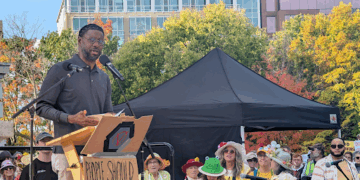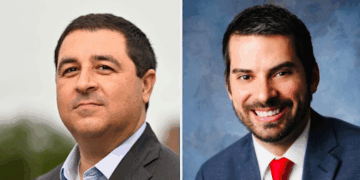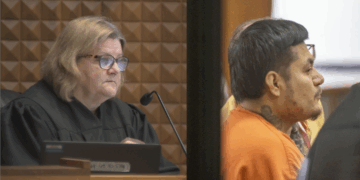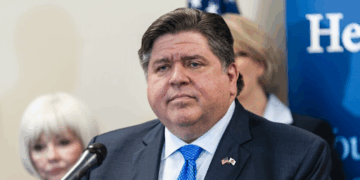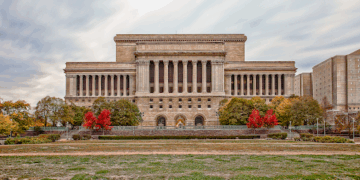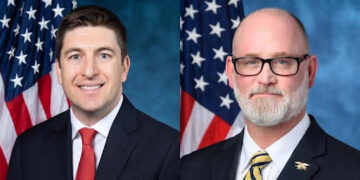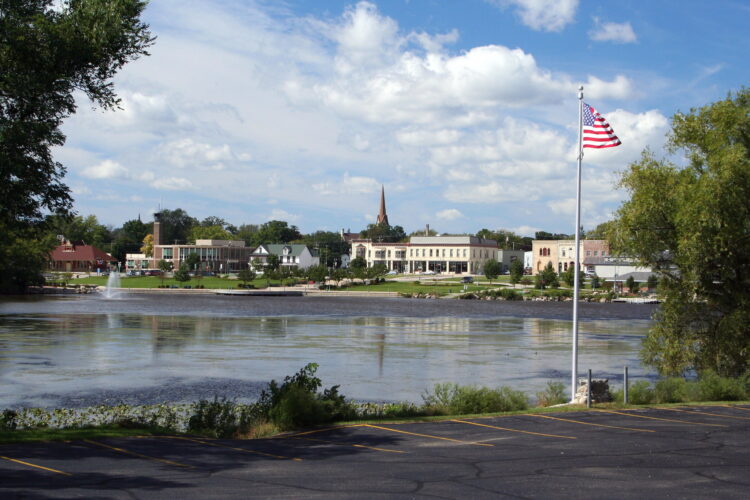Whitewater, Wis.—In a transformation that surprised many residents, Whitewater, a town of 15,000 nestled an hour west of Milwaukee, has seen a disproportionate influx of migrants since the end of 2021.
Before their arrival, local news and discussions centered on typical small-town affairs—school fundraisers and the University of Wisconsin-Whitewater’s Division III athletics. However, today, the spotlight is firmly on the town’s 1,000 new inhabitants, predominantly from Nicaragua and Venezuela, who often remain under the radar due to their lack of official identification.
Locals speculate that the actual number of migrants could be double the figures officially reported by the police department.
While the migrant crises plaguing major cities like Chicago and New York make national headlines, Whitewater’s residents find themselves grappling with the challenges firsthand.
Jeffrey Knight, president of the Greater Whitewater Committee, is keen to highlight the stark contrast between Whitewater’s experience and that of larger metropolitan areas. While New York’s population has seen a modest 2 percent increase due to immigration, Whitewater’s population has surged by nearly 10 percent over two years, largely attributable to the southern border crisis.
Knight emphasizes that this growth would equate to over 1.5 million newcomers in New York.
Whitewater residents demonstrate a welcoming attitude towards new arrivals but acknowledge the strain the influx has placed on their community. Schools are scrambling to hire English as a Second Language (ESL) teachers, emergency services are inundated with incomprehensible calls reporting domestic incidents, and healthcare providers are grappling with a surge in uninsured patients.
According to a town official speaking on the condition of anonymity, addressing the needs of migrants has left Whitewater facing a budget deficit of $400,000.
Long-time resident Michael Smith reflects on the challenges facing Whitewater, saying, “While everyone here is welcoming, it’s hard to ignore the problems that have arisen. Everything feels overwhelmed right now.”
The reasons behind the migrants’ choice of Whitewater remain unclear. Despite not being a sanctuary city and lacking any official efforts to relocate migrants, the town finds itself at the epicenter of America’s immigration saga. Some speculate that progressive rhetoric from the city council may have attracted migrants, while others believe Whitewater provides a convenient hiding place for those living in the country illegally.
Regardless of the motivations, Whitewater’s experience offers a glimpse into the future of immigration in America, with no signs of a slowdown in illegal border crossings—roughly 8.5 million since President Joe Biden’s inauguration—more towns like Whitewater will inevitably face similar challenges.
As the town grapples with the influx, its institutions must adapt. The hiring of ESL teachers alone has incurred significant costs for Whitewater Public Schools. Additionally, concerns have been raised about the welfare of migrant students, with reports of sexual abuse and health issues emerging.
However, perhaps the most contentious issue is the strain on law enforcement. Internal reports from the Whitewater Police Department depict officers responding to distressing situations, including discovering deceased infants and individuals living in dire conditions.
Neighboring counties have expressed concerns about cartel activity among Whitewater’s migrant population, with fentanyl seizures on the rise. Law enforcement officials report tracing substantial sums of money back to drug cartels, highlighting the multifaceted challenges faced by the town.
Whitewater Police Chief Dan Meyer, in a statement to local media, emphasizes the urgent need for assistance from the Biden administration to address the strain on resources.
While some lawmakers, like Sen. Tammy Baldwin and Governor Tony Evers, have pledged support for Whitewater, calls for more vigorous border enforcement from Republicans like Rep. Bryan Steil and Sen. Ron Johnson underscore the political divide over immigration.
Amidst the disruption, Whitewater’s local government prides itself on its progressive values, but residents like Chuck Mills, while skeptical of liberal policies, remain open to welcoming migrants. Mills acknowledges the labor shortage facing the town and sees potential in the new arrivals to fill essential roles.
However, the town’s housing shortage remains a pressing concern. With only a handful of new homes built annually, many residents struggle with housing costs, exacerbating existing challenges.
Rep. Bryan Steil emphasizes the need for enforcing immigration laws as a national solution to local problems like those facing Whitewater.
Yet, despite the challenges and political debates, Whitewater’s residents are resilient. As they navigate the complexities of immigration, they remain committed to finding solutions and adapting to their new reality.
“We may not have reached our breaking point yet,” says Smith, “but here in Whitewater, we’re determined to overcome whatever challenges come our way.”

